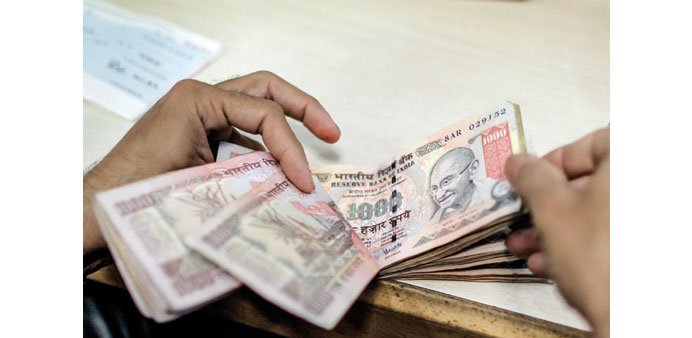IANS
Kathmandu
Amid growing black market operations, Nepal’s central bank has imposed tighter controls over the exchange of Nepalese currency for the Indian rupee.
To begin with, the Nepal Rashtra Bank has halved to Rs2,500 the amount in Indian currency it issues daily to an individual. Each person is permitted to exchange Nepal currency with Indian rupee once a week.
Also, the Indian currency in the denomination of Rs500 and Rs1,000 was not available for exchange. The government has also formed a committee to look into the problem.
According to the central bank, the move is aimed to check the misuse of Indian currency as many traders were hoarding it to sell it at a higher rate.
The central bank has also made the production of relevant documents mandatory to get Indian currency. Previously, people only had to show a copy of their citizenship certificate.
“As the trend of exchanging Indian currency to sell at a higher price has spread, we have been forced to take immediate measures to control it,” said Nepal Rashtra Bank spokesperson Trilochan Pangeni.
Pangeni said the currency exchange control was only temporary.
The rise in demand for the Indian currency along the towns on the Nepal-India border was due to its alleged use by smugglers and black marketeers to purchase fuel and other
essential items.
Nationals of Nepal and India, official said, are involved in smuggling of fuel and electronic and electrical items from across the border to sell them at higher prices. It requires Indian
currency for trading.
The central bank said currency brokers in border areas of Nepal have been luring unemployed people to stand in queues at currency exchange counters by offering them commission.
In the wake of political unrest in Terai region, the central bank branch in Biratnagar has seen long queues of people wanting to obtain Indian currency in the past two months.
The move has also invited criticism.
Bijay Paswan of Katari in Morang district bordering India said he was to visit his relatives in India urgently, but rued the checks imposed by the central bank on currency exchange.

